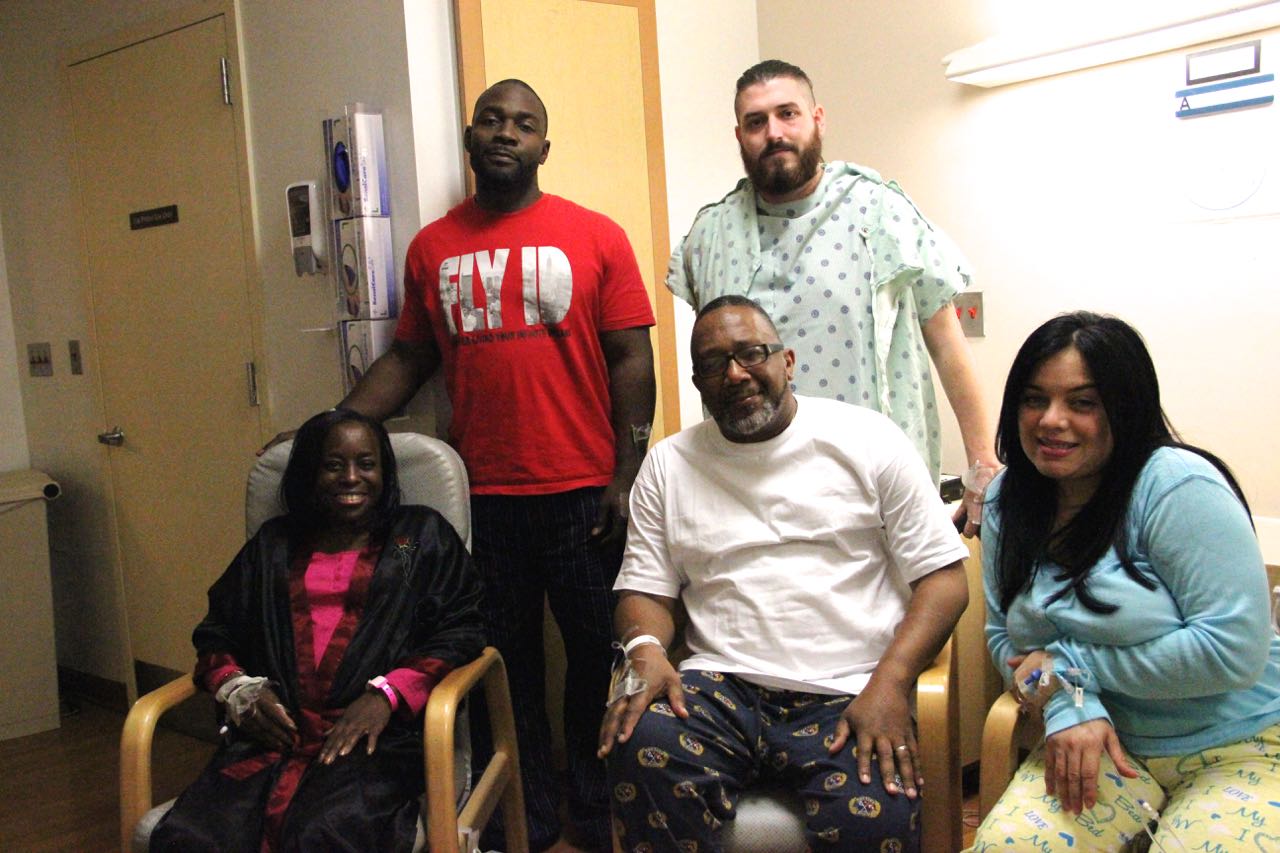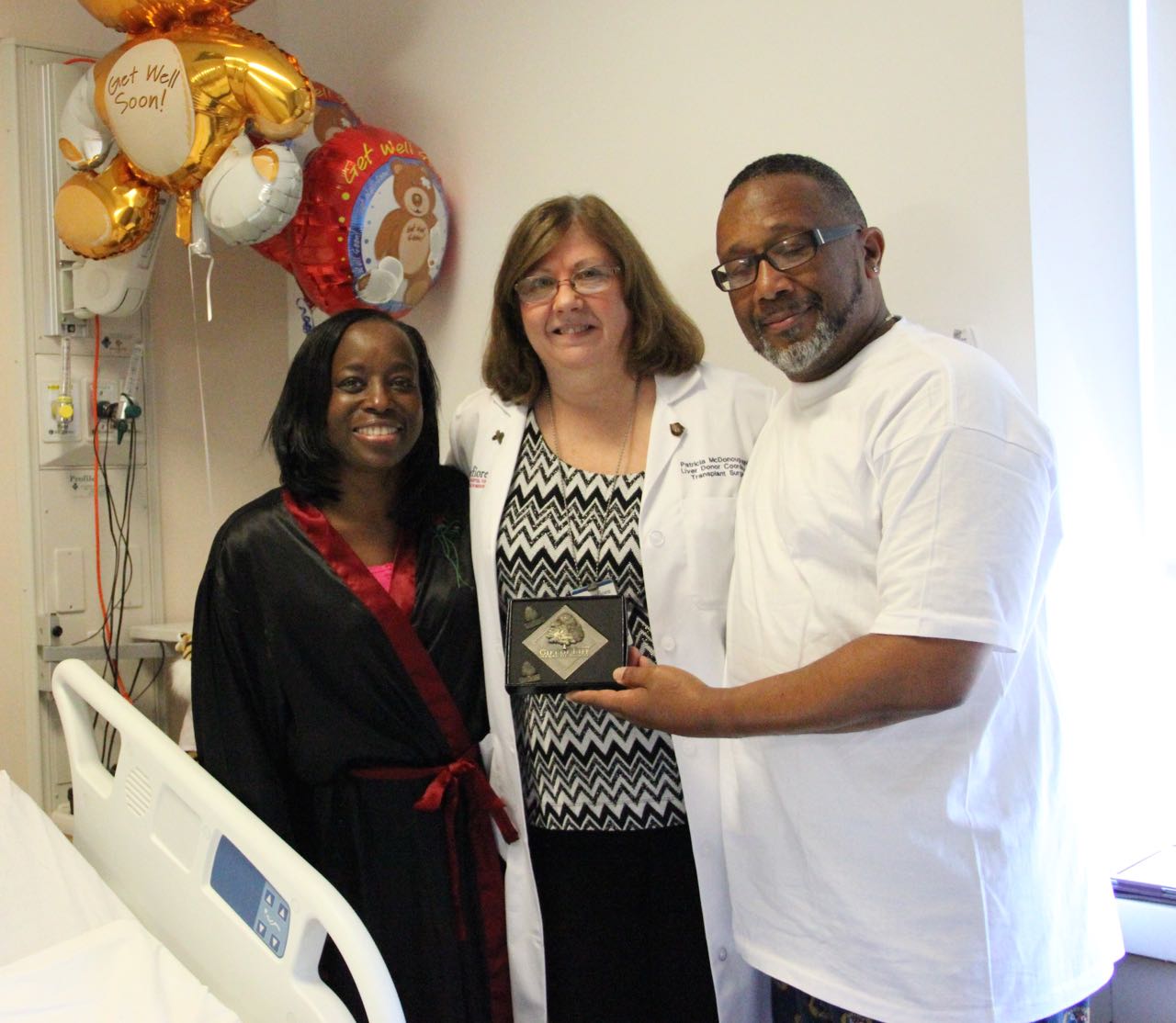
Photo courtesy Montefiore Health System
Vital Stats: 200 – Number of liters of blood a human kidney filters daily. (Source: Kean University)
A four-way kidney transplant was performed at Montefiore Medical Center on Nov. 11, Veterans Day, thanks to the generosity of 30-year-old Army veteran Christopher Forthman , who decided to be an altruistic kidney donor. Forthman, a neighbor in Norwood, donated one of his organs to Juan Garcia, sparking a rare pay-it-forward style chain that would lead to three other Bronx patients in need of a donated kidney. Garcia was initially supposed to receive a kidney from his daughter Sagracio, but she was not a match for him.
Instead, Sagracio donated her kidney to Dorothy Vitales, whose son, Rasheed, also had a blood type incompatible with his mother. Rasheed donated a kidney to Rebecca Cherry, whose husband, Lawrence, was incompatible with her. Lawrence completed the chain by donating one of his kidneys to Emily Cokey, who didn’t have a family member who could donate.

Photo courtesy Montefiore Health System
The team at the Montefiore Einstein Center for Transplantation in Norwood, which consists of surgeons, nephrologists, nurses, transplant coordinators, social workers and nutritionists, evaluated patients in need of kidneys. After a number of calculations, the team realized that each of these families had matching blood types and similar antibodies to those in the other families.
“We are so proud of our team that helped make this swap a reality because we know how much it means for our patients and their families,” said Juan Rocca, M.D., surgical director, Kidney/Pancreas Transplant Program, Montefiore Einstein Center for Transplantation.
Human beings possess two kidneys, though they can function well with one healthy kidney, making it one of the more accessible replacement organs. Resting near the backside waist and aligning near the spine, kidneys regulate fluids in a body, recycling good fluids such as blood while flushing out harmful ones such as urea and ammonium via the urinary tract system.
Kidneys can get damaged or fail if they’re overloaded with harmful fluids, infected, suffer a tumor or react negatively to medication pills. Fatigue, loss of appetite, high blood pressure, nausea, difficulty sleeping and skin irritation are common symptoms linked to failing kidneys. If kidneys no longer function, dialysis is utilized daily or weekly to artificially perform a kidney’s filtration process. Blood tests often determine whether a patient has kidney disease. A healthy diet is one way to prevent kidney disease.
In the case of the four kidney recipients, all suffered severe kidney disease with some undergoing dialysis treatment. If they were unable to participate in this swap, they would have had to wait five to seven years for a kidney.
These Bronx families were unknown to each other, and with various ethnic backgrounds, but they have one thing in common: they all have a new lease on life, thanks to their families and one selfless veteran who served his country for five years in Iraq and Afghanistan, and now wants to do more.





At first thank to Army vettera Christopher Forthaman, who donated Kidney
I am very grateful for all that this veteran did to start this chain of events. I thank all physicians who were involved in this procedure. Because of this my friend who is my sister has a new lease on life. Becky is in great spirits and very bless along with the others who under went this same procedure. God bless your all and may God give each of you your heart’s desires.